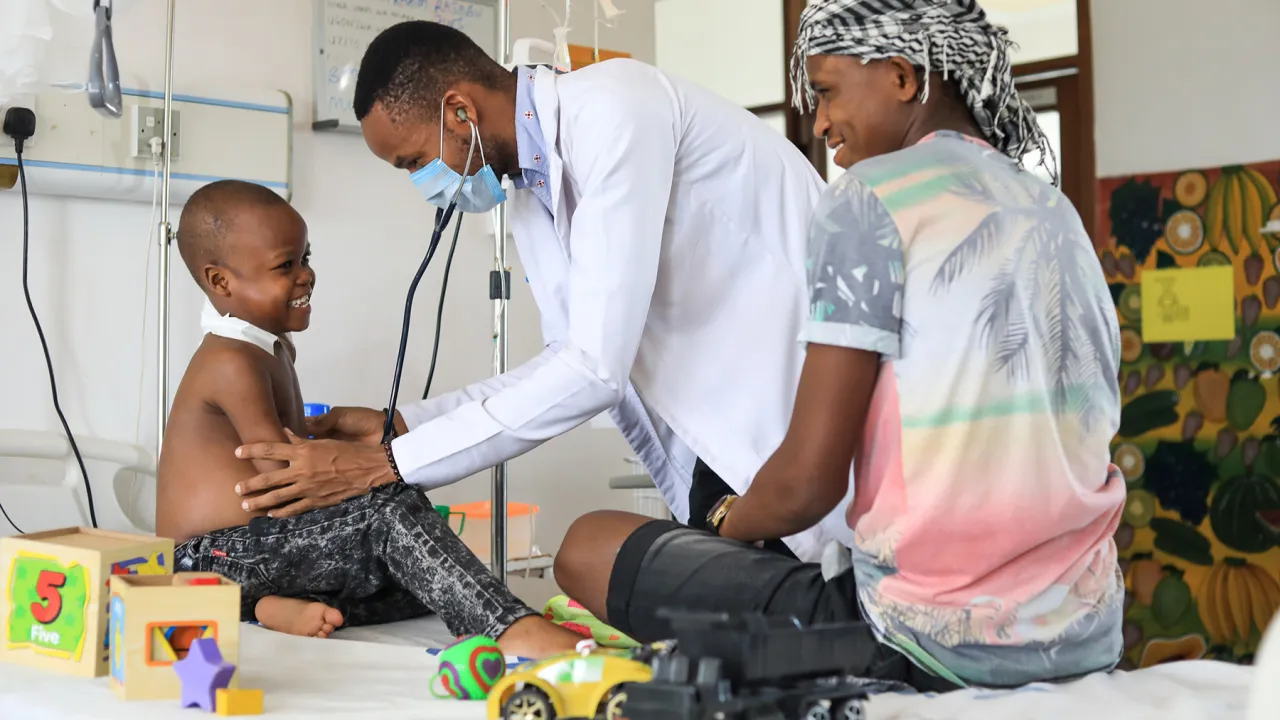
DiYES International School – Supporting a child with cancer is a challenging and emotional journey for both the child and their family. As parents or caregivers, understanding the medical, emotional, and practical aspects of cancer treatment is crucial to ensuring the best possible care and support for your child. Cancer diagnosis in children is not only difficult to comprehend but can also leave families feeling overwhelmed. This article aims to provide valuable guidance on how to support a child through this difficult time while maintaining your own well-being.
The first step in supporting a child with cancer is understanding their diagnosis. It is essential to learn about the type of cancer your child is facing, the stages, and the treatments available. Pediatric cancers vary widely, so learning about the specific condition can help you make informed decisions regarding treatment options.
Be sure to ask the doctors questions and seek information about how the treatment will affect your child’s day-to-day life. The more you understand the illness and treatment plan, the more effectively you can help your child navigate this difficult time.
“Read about: Astigmatism in Kids: How Corneal Shape Affects Their Vision”
One of the most important things parents and caregivers can do is to keep the lines of communication open. Children, even when they are young, often sense when something is wrong. They may not fully understand the disease but can pick up on emotional shifts in the household.
Encourage your child to express their feelings. Let them know that it’s okay to feel scared, angry, or confused. Tailor your communication to your child’s age and understanding. Be honest but also reassuring, explaining what is happening in terms they can understand. This openness fosters trust and helps children feel safe, even in the face of uncertainty.
Cancer treatment can bring about various emotional challenges. Your child may experience feelings of sadness, fear, and anxiety, which can fluctuate throughout the treatment process. It’s important to offer emotional support at every stage of the journey.
You can encourage your child to participate in fun activities that make them happy. Play, hobbies, or even creative outlets like drawing and writing can be great ways to alleviate stress and offer a sense of normalcy. Support groups for children undergoing cancer treatment may also be helpful, allowing your child to meet others who are going through similar experiences.
Additionally, don’t forget your own emotional well-being. Caring for a child with cancer can be emotionally draining, so it’s equally important for parents and caregivers to seek support from family, friends, or professional counselors.
The medical side of cancer treatment often involves numerous appointments, tests, and hospital stays. These can quickly become overwhelming for both the child and the family. It’s essential to be organized and prepared.
Keep a calendar or list of all upcoming appointments, medications, and any necessary paperwork. This will help you manage your child’s schedule and stay on top of treatment plans. Also, remember that it’s okay to ask for help. A friend or family member can assist with transportation or accompany your child to medical appointments, allowing you to take a break when needed.
“Read more: Trafficking for Military Exploitation: A Hidden Weapon in Global Conflict”
A cancer diagnosis can disrupt daily routines, but there are practical ways to help your child maintain some sense of normalcy. For instance, you might need to modify your child’s diet, taking into consideration any side effects from treatment such as nausea or changes in appetite. You may also have to adjust their school schedule or find ways to keep them engaged with education if they are too sick to attend school regularly.
Maintaining a routine, even a modified one, can help your child feel more secure and less anxious. Also, try to encourage socialization with peers, even if it’s just through virtual platforms. Isolation can add to emotional stress, so finding ways to stay connected with friends and family is important.
In families where there are siblings, it is crucial to acknowledge their feelings as well. Siblings of children with cancer often experience feelings of neglect, jealousy, or fear. They may also feel confused about why their brother or sister is getting so much attention.
Make sure to spend one-on-one time with each sibling, addressing their emotions and reassuring them. It’s helpful to explain the situation in an age-appropriate way, and encourage siblings to talk about their feelings. Sibling support groups can also provide a safe space for them to share their thoughts and feelings.
Lastly, taking care of yourself is key to being able to support your child effectively. Parents and caregivers often put their own needs last, but you cannot be there for your child if you’re not well yourself. Make sure to get rest, eat well, and take breaks when possible. Seek professional help if you’re feeling overwhelmed, and don’t hesitate to reach out to support networks.
Remember that it’s okay to feel stressed or exhausted. Caring for a child with cancer is a huge responsibility, and taking care of your mental health is essential to being a strong support system for your child.